Oils for Freediving
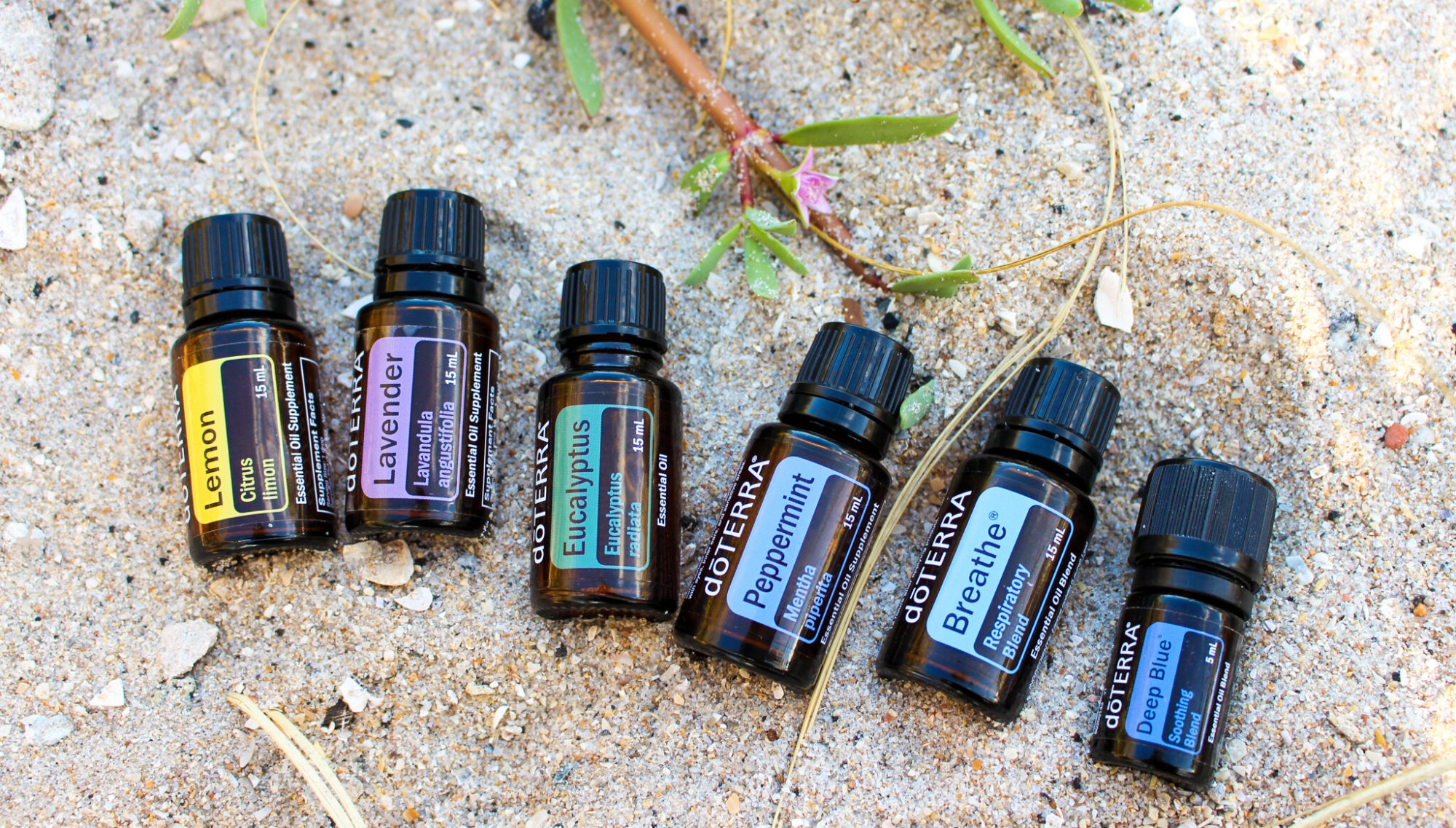
Oils for Freediving
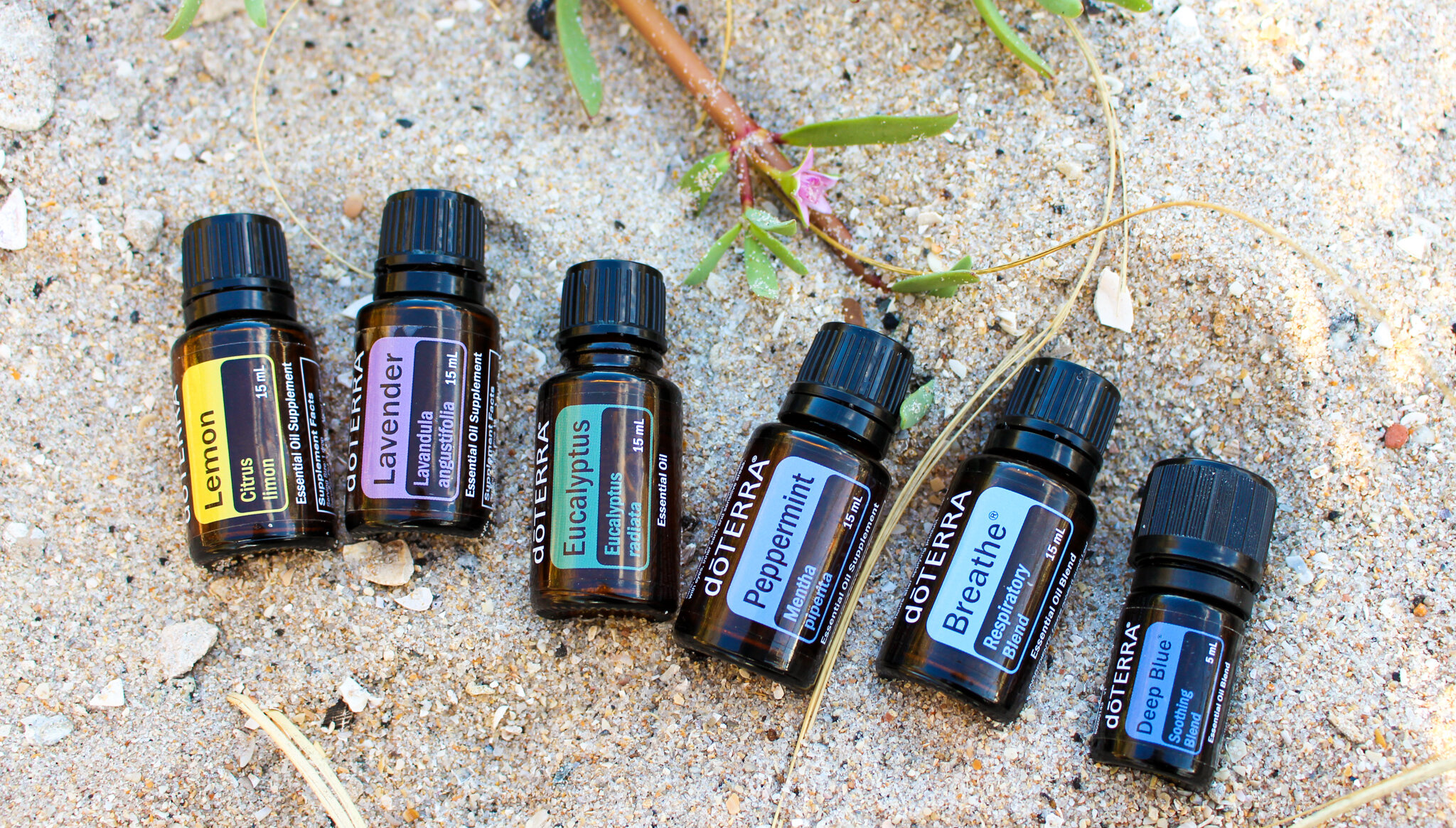
What are Essential Oils
Essential oils are plant medicine derived from the essence of a plant. It protects the plant from harmful environmental factors, gives a plant its scent along with many other important functions and benefits. Essential oils can be extracted from roots, seeds, flowers, bark or resin. Plant medicine has been used effectively for thousands of years by ancient civilizations around the world. Essential oils are a natural, safe and effective way to maintain your health. They are extremely versatile and can be used in a wide range of daily practices and address specific health concerns.
We have recently made a shift away from chemical cleaning products and medicine to more plant based resources. The results have been amazing, and during the process we have found many additional benefits from essential oils that can be applied to freediving! This article highlights the benefits of essential oils specifically for Freediving and how to implement them into your everyday life!
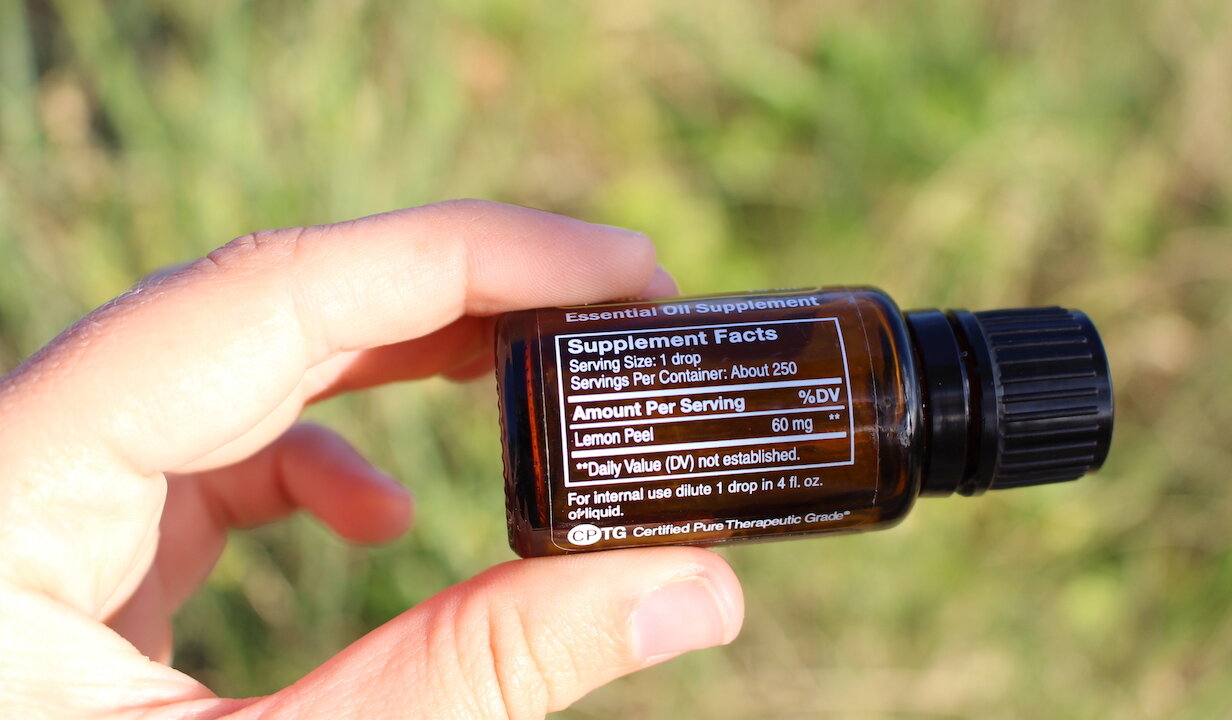
How do I Choose an Essential Oil
When choosing essential oils, it’s important to know where they come from (sustainable & ethically sourced) and whether or not they are pure, especially if you want to ingest them. Most essential oils on the market, like those from large retailers, contain synthetic chemicals and additives. This is due to the extraction process and to keep the cost of the product low, they add synthetic fillers. I only trust doTERRA because I know every oil is held to the highest possible level of purity, is ethically and sustainably sourced. I’m confident that every oil is safe, pure and effective. Pure essential oils also are more potent, so a little goes a long way!
(When looking to ingest essential oils, make sure there are ‘supplement facts’ on label)
Pure essential oils offer an alternative to synthetic products. Essential oils are more than just natural products. Each with a unique chemical makeup, essential oils have dozens of benefits for the body and mind. Essential oil benefits are determined by the chemistry of the plants. If these natural chemicals are properly extracted, they can be used to help you physically, mentally, and emotionally in your daily life.
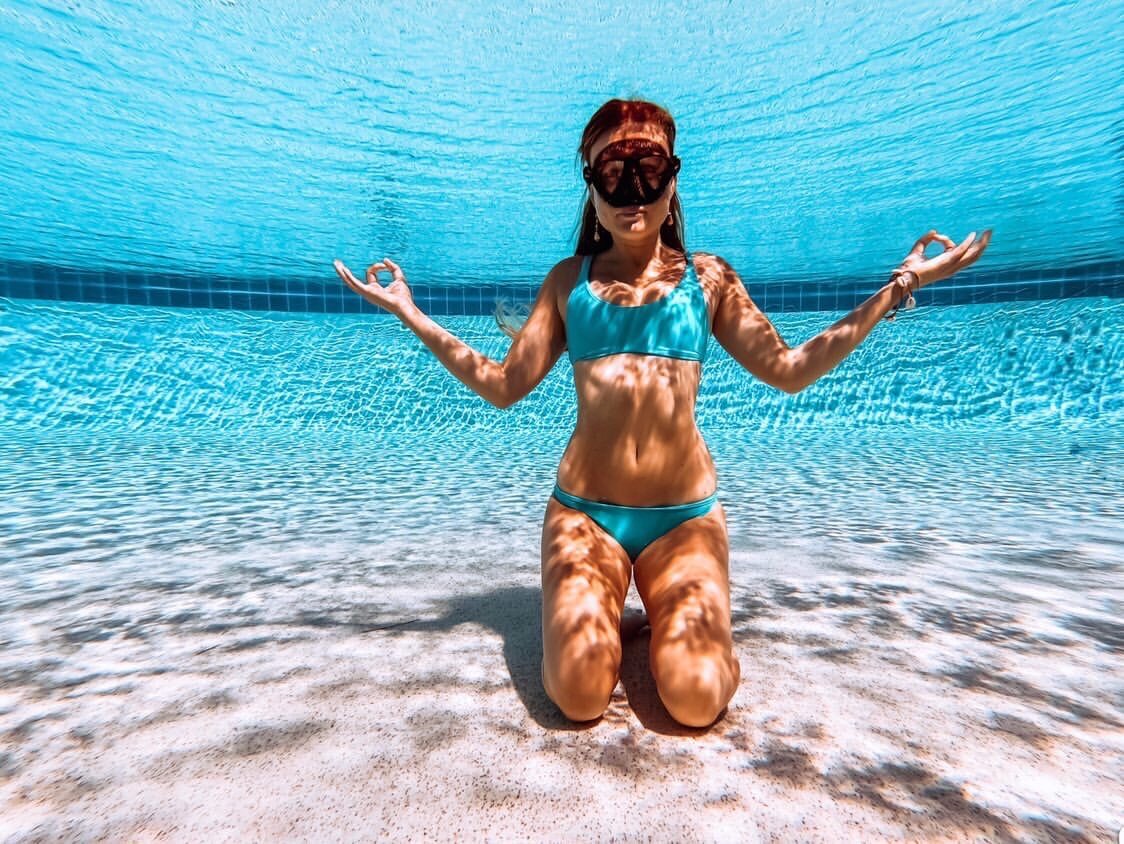
Using Essential Oils
There are so many different ways you can use essential oils, but the following are some of my favorite uses that can be applied to the world of Freediving!
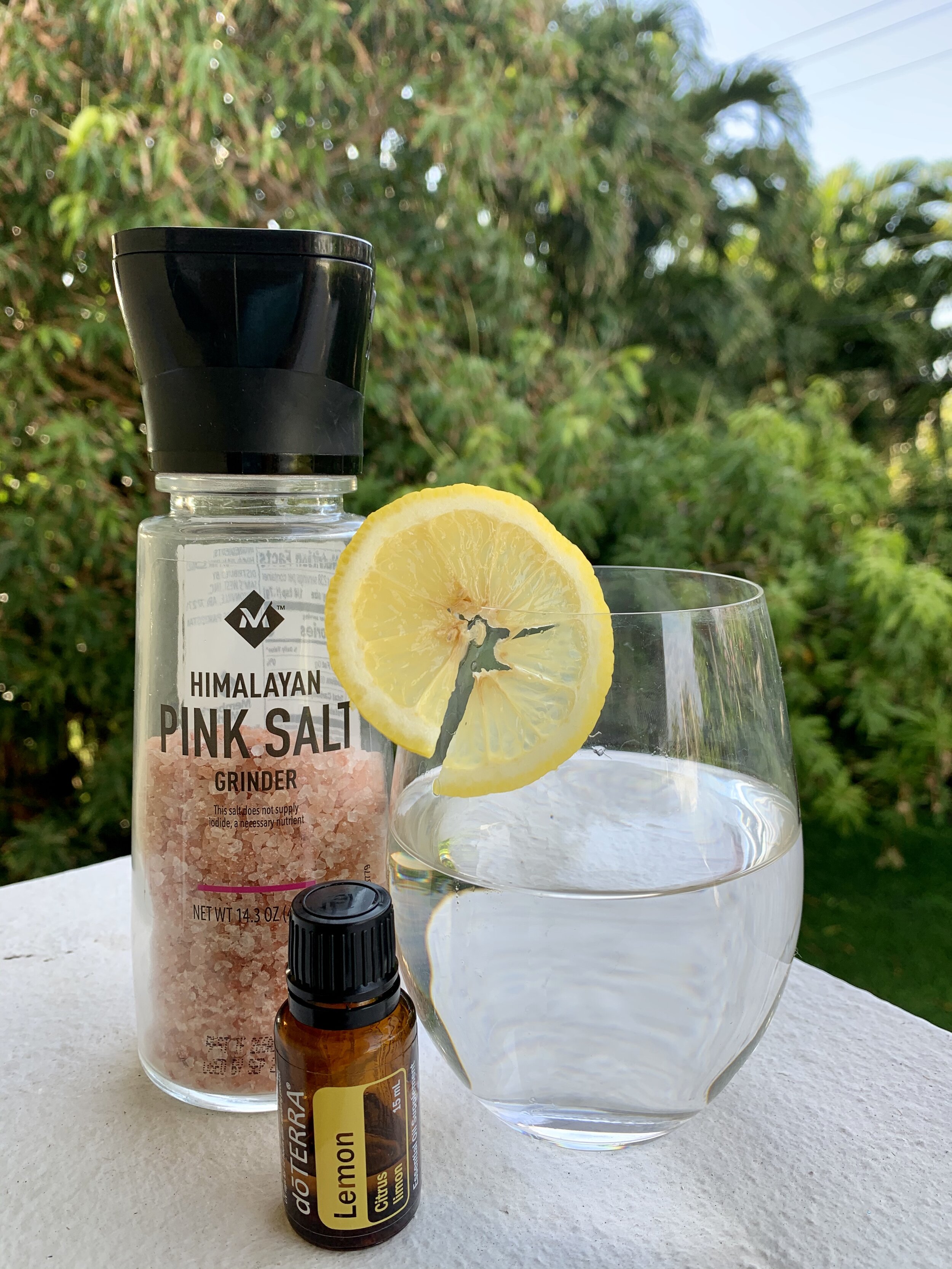
Lemon
The cleansing, purifying, and invigorating properties of Lemon make it one of the most versatile oils. This is an oil that we use pretty much everyday! Every morning I add it to my water to help kick start my day. It naturally cleanses the body and aids in digestion, and supports healthy respiratory function. It also makes your water taste great! Worrying about “drinking enough water” is never an issue. Adding lemon essential oil enhances the flavor of “boring” water, so you’re naturally inclined to drink more water throughout the day! As a Freediver, hydration is key. If you’re not properly hydrated, equalization becomes harder along with other factors such as fatigue and cramping.
It also provides a refreshing and healthy boost throughout the day. Instead of drinking sports drinks that are filled with sugar and other processed chemicals, add a few drops of lemon (or other citric oils such as grapefruit or lime) and some pink Himalayan salt to water to replenish electrolytes.
Another thing I love about lemon essential oil is the convenience. I’m constantly traveling and on the go, so having a small bottle I can just throw in my bag helps keep me on track. Don’t have to worry about cutting up lemons in the morning (which sometimes is a task if you’re on the road or traveling).
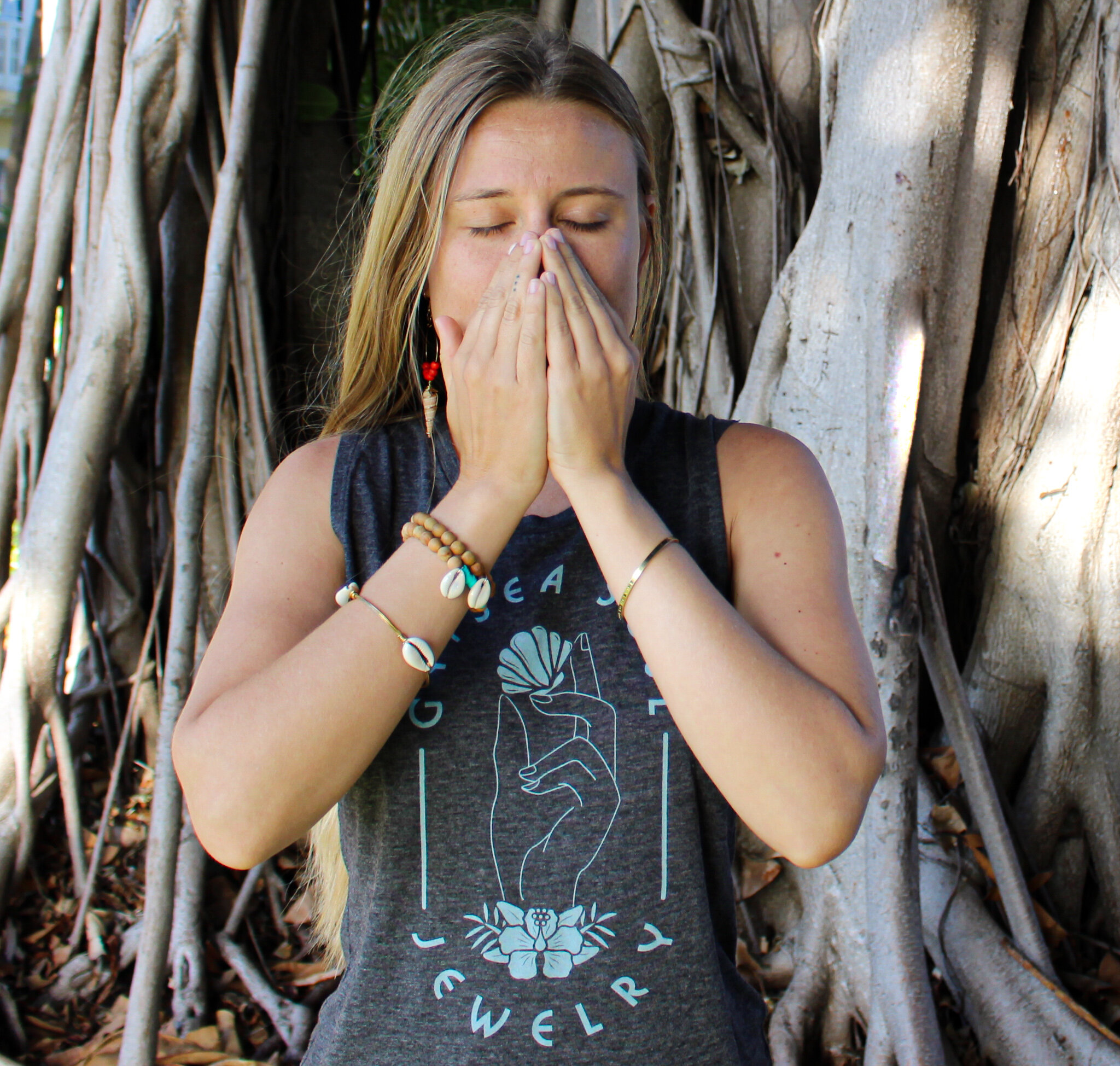
Breathe
doTERRA Breathe is a remarkable blend of essential oils including Laurel Leaf, Peppermint, Eucalyptus, Melaleuca, Lemon, Cardamom, Ravintsara, and Ravensara. This is one of my favorite oils to do breathwork with because it helps support the respiratory system and provide clear airways for easy breathing. This blend has a calming effect, so I like to use it when I practice dry static breath holds . Add 1-2 drops in the palm of your hand, rub together, cup over your nose and inhale deeply. The refreshing aroma creates feelings of clear, easy breathing and will make you feel relaxed.
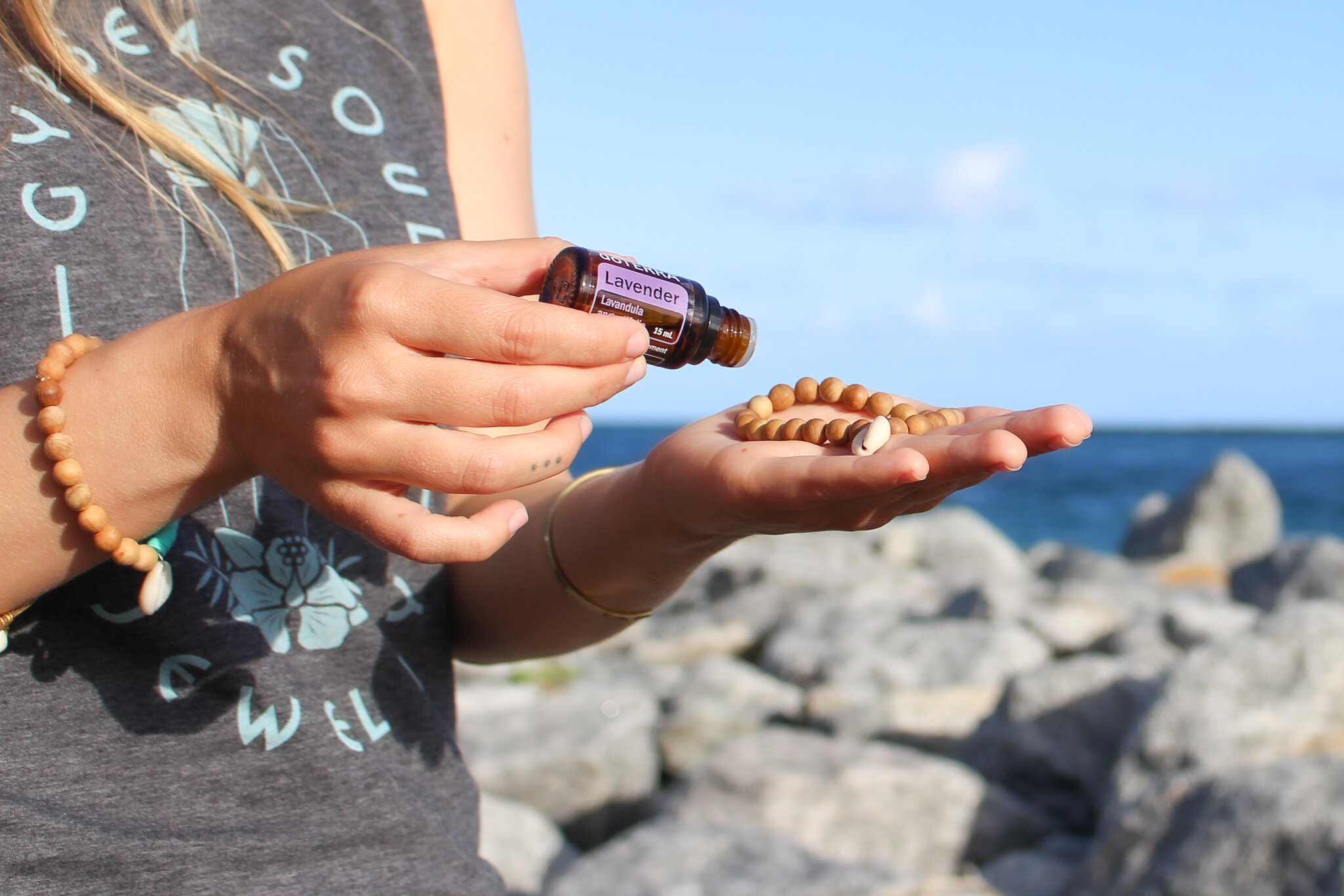
Lavendar
Lavender oil is often considered a must-have oil to keep on hand at all times due to its versatile uses, including calming and relaxing properties. As Freedivers, we want to be as calm as possible in order to conserve oxygen. We have to train our mind to stay calm under pressure (literally) to make our dive more enjoyable. Doing breathwork with lavender puts your mind at ease and makes you feel relaxed. Working with essential oils trains our subconscious mind by connecting thoughts or experiences with certain smells. I’ve associated lavender with feelings of safety and calmness. Sometimes I’ll apply it on my temples or under my nose in preparation for a dive to tap into my subconscious mind for instant relaxation.
No matter how many times I’ve been diving in my life, the night before I always feel like a kid waiting for Christmas morning. I get anxious and have trouble sleeping even though I know that a good night of sleep is very important for a long day of diving. Applying lavender to the bottom of your feet, adding a few drops to your pillow or diffusing at night helps to relax and prepare for a restful night’s sleep. You can also add a drop in your water to promote peaceful sleep and reduce anxious feelings.
Living in Florida and being out on the boat diving all day means a lot of sun exposure. Lavender has wonderful healing abilities to minor cuts, scrapes, skin irritations and burns due to its antiseptic qualities. Add a few drops of Lavender on a piece of aloe Vera to help soothe sunburn and skin irritations after being out in the sun all day. It’s the perfect combo! You can also put a piece of aloe in the fridge to add some extra coolness.

Deep Blue
After a long day of constantly kicking up and down a line, kicking against the current, or longer than anticipated beach dive swims, I like to apply deep blue to tired legs and muscles. It’s a soothing and cooling oil blend, like icey hot but without all the harsh chemicals. It’s perfect for a soothing massage after a long day of work. I also like to rub it on my neck to get rid of any tightness or tension I might be holding onto. Making sure you have a soft and buttery neck is important while Freediving. We tend to hold a lot of tension in our neck, and tension burns precious oxygen. Remember to relax and enjoy the ride!
Eucalyptus
Having sinus issues or congestion is every Freediver’s worst nightmare. This means equalization becomes harder or nonexistent. Not being able to equalize means no diving (which is no fun!). Eucalyptus has similar properties to menthol, making it an ideal oil to help open airways and ease congestion. Steam inhalation with eucalyptus oil is one of my favorite methods to promote feelings of clear breathing and help relieve tension. While taking a hot shower, add a few drops into the palm of your hands and inhale deeply. If you’re having more severe congestion, add 3-7 drops of oil to boiling water in a big bowl. Place a towel over your head and breath through your nose for a couple minutes at a time. The therapeutic steam will help relieve sinus congestion, unblock a stuffy nose, and promote sinus drainage.
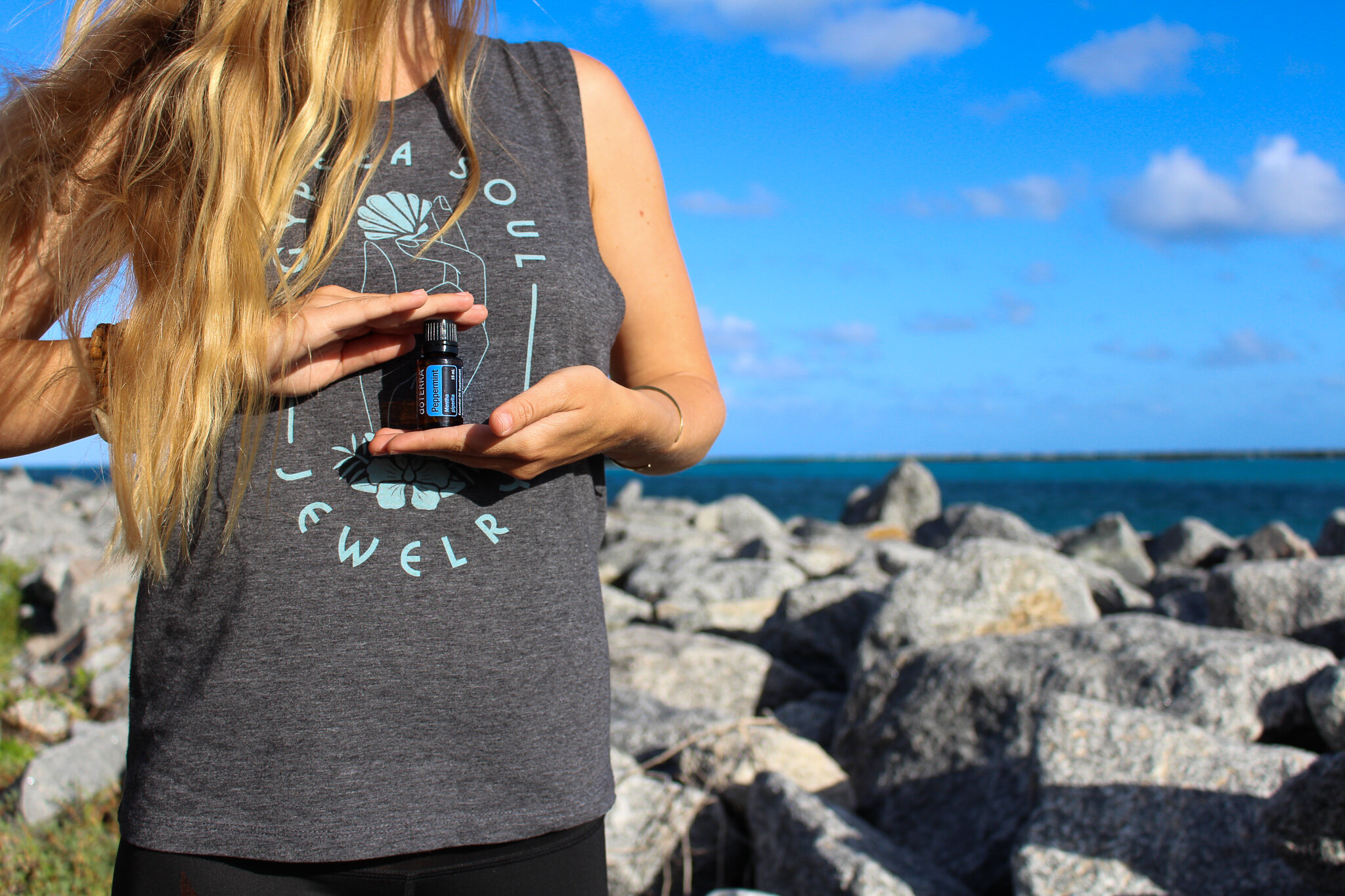
Peppermint
Another great oil to help with blocked sinuses! Peppermint oil contains menthol, which is a compound that affects the mucus receptors in the nose, helping to open the airways and clear mucus. Steam inhalation or diffusing in air are both great methods to help open airways.
Do you struggle with motion sickness or seasickness? Peppermint is a great oil to help soothe an upset stomach, reduce nausea, vomiting, motion sickness and increase digestion. Add one to two drops in a glass of water and sip, or add to a veggie capsule and take orally. I also like to have a bottle with me and inhale directly from the bottle.

DigestZen
This is a wonderful blend for the stomach and digestion. DigestZen is great to have on hand when an upset stomach occurs and is safe and effective. You can also take this blend internally in a veggie cap before you head out to sea. This will help settle the stomach and fight queasy feelings so you can enjoy the day ahead of you! It’s a healthy, natural and gentle way to soothe a motion sick stomach.

Red Raspberry Seed Oil
Being out in the sun for long periods, it’s important to protect your skin. However, many conventional sunscreens on the market are full of chemicals that increase free radicals in the body, mimic estrogen and are damaging to coral reefs. Your skin is the largest organ of the body and acts like a giant sponge. Whatever you put on your skin will absorb into your body. Some chemicals such as oxybenzone, persist in the body and are held in the body’s tissues. It’s also very harmful to our reefs. Several studies have shown that oxybenzone directly contributes to coral bleaching. Luckily, there are safe and natural sunscreen alternatives that are better for you and the health of our ocean. Red raspberry seed oil has natural SPF 28-50 and protects against UVB rays. Carrot seed oil has spf 38-40 and also protects against UVB rays. They are best diluted in a carrier oil, such as fractionated coconut oil.
As Freedivers, we explore beneath the surface of the ocean, so we’re able to see firsthand what the state our underwater ecosystem is in. We see the decline of beautiful reef structures due to human impact. It’s our job as Freedivers to be ambassadors for our ocean and help educate others. Change people’s attitude of “out of sight out of mind” mentality. The negative environmental effects of sunscreen is one example – 14,000 tons of sunscreen are thought to be washed off human bodies and into the ocean annually.
